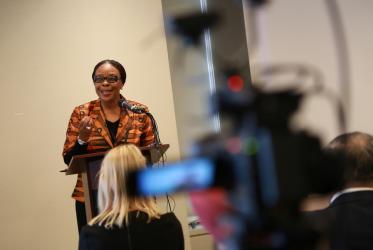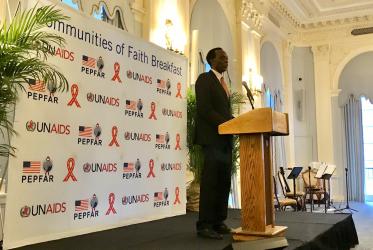Affichage de 1 - 20 de 29
In Zambia, foreign investors complicate “economy of life”
06 Septembre 2017
Les investisseurs étrangers compliquent l'«économie de la vie» en Zambie
06 Septembre 2017
Ökumenischer Kurs verknüpft Theologie und Wirtschaft
05 Septembre 2017
GEM School: integrating theology and economics
05 Septembre 2017
École GEM: comment concilier théologie et économie
05 Septembre 2017
Zambia: “On HIV, we do not compete. We work together.”
20 Octobre 2016
Kenya: Voice of faith communities crucial in overcoming HIV
14 Octobre 2016





